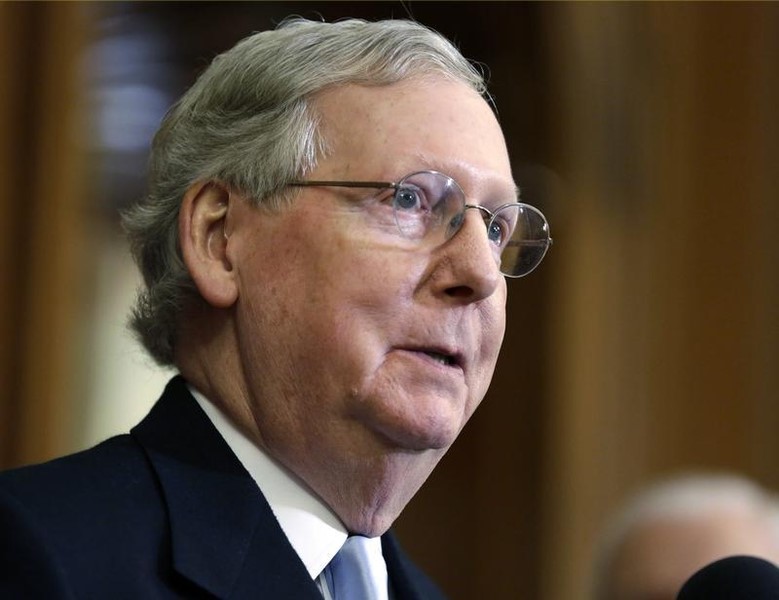By Julia Harte
WASHINGTON (Reuters) - As the Senate's top Republican mulls whether to push ahead on a criminal justice reform package, the bill’s advocates say its power to cut crime is on display in his own back yard.
Mitch McConnell, the Senate's Republican leader, represents Kentucky, one of a handful of states that have had some success with sentencing reform and reducing violent crime.
Violent crime rates are down nationwide since President Barack Obama's first term, but states such as Kentucky have seen it fall more steeply than the national rate.
Kentucky's imprisonment rate also declined after it reduced sentences for certain drug offenders and passed a policy to release some prisoners to community supervision before the end of their sentences in 2011. The policy saved the state more than $29 million over two-and-a-half years, according to the Pew Charitable Trusts, a policy research group.
McConnell could move forward in the Senate with a reform measure that would lower mandatory minimum sentences for some nonviolent federal drug offenders and permit judges to rehear cases with those new sentences in mind. It is backed by the Obama administration and a bipartisan group of 30 senators.
The federal measure "has been informed by success stories" in states that have passed similar laws over the past decade, U.S. Deputy Attorney General Sally Yates told Reuters.
"I'm confident that we would see similar results if Congress were to pass important reforms at the federal level," she said.
McConnell in January vowed to bring "everybody in the Republican Conference up to speed... before any decision is made about floor time" since the bill has so far been discussed mainly in the Senate Judiciary Committee.
McConnell spokesman Don Stewart said he had no new announcements on the bill's prospects for advancement.
Some Republicans oppose it, such as Arkansas Senator Tom Cotton, who says parts of the proposal applying to armed drug offenders would “release thousands of violent felons.”
But sponsors of the Senate package cite state-level success in arguing for the federal reforms. “While I am excited about our federal prospects, the fact is that we could not have gotten to this point if it were not for the great reforms that Utah and other ‘red’ states around the country are enacting,” Republican Utah Senator Mike Lee told Reuters, referring to states that predominantly support the Republican Party.
Thirty states reduced crime and imprisonment rates simultaneously between 2009 and 2014, Pew said, with 18 of those states' crime rates falling faster than the national rate.
Utah last year lowered penalties for certain drug offenses. It also restricted prison beds to only the most serious offenders through a law the state expects to nearly flatline prison growth over the next 20 years and save $542 million.
The U.S. Sentencing Commission estimates more than 12,000 prisoners - about six percent of the federal prison population - would be eligible to have their cases reheard under the Senate bill. A parallel package of bills in the House of Representatives also awaits a floor vote.
Earlier this month, Justice Action Network hired McConnell’s former chief of staff, Hunter Bates, to lobby for the bill.

Bates told Reuters that McConnell is “not quite ready” to advance the bill yet, but that it is on a "short list" of bills that have a shot at becoming law in 2016.